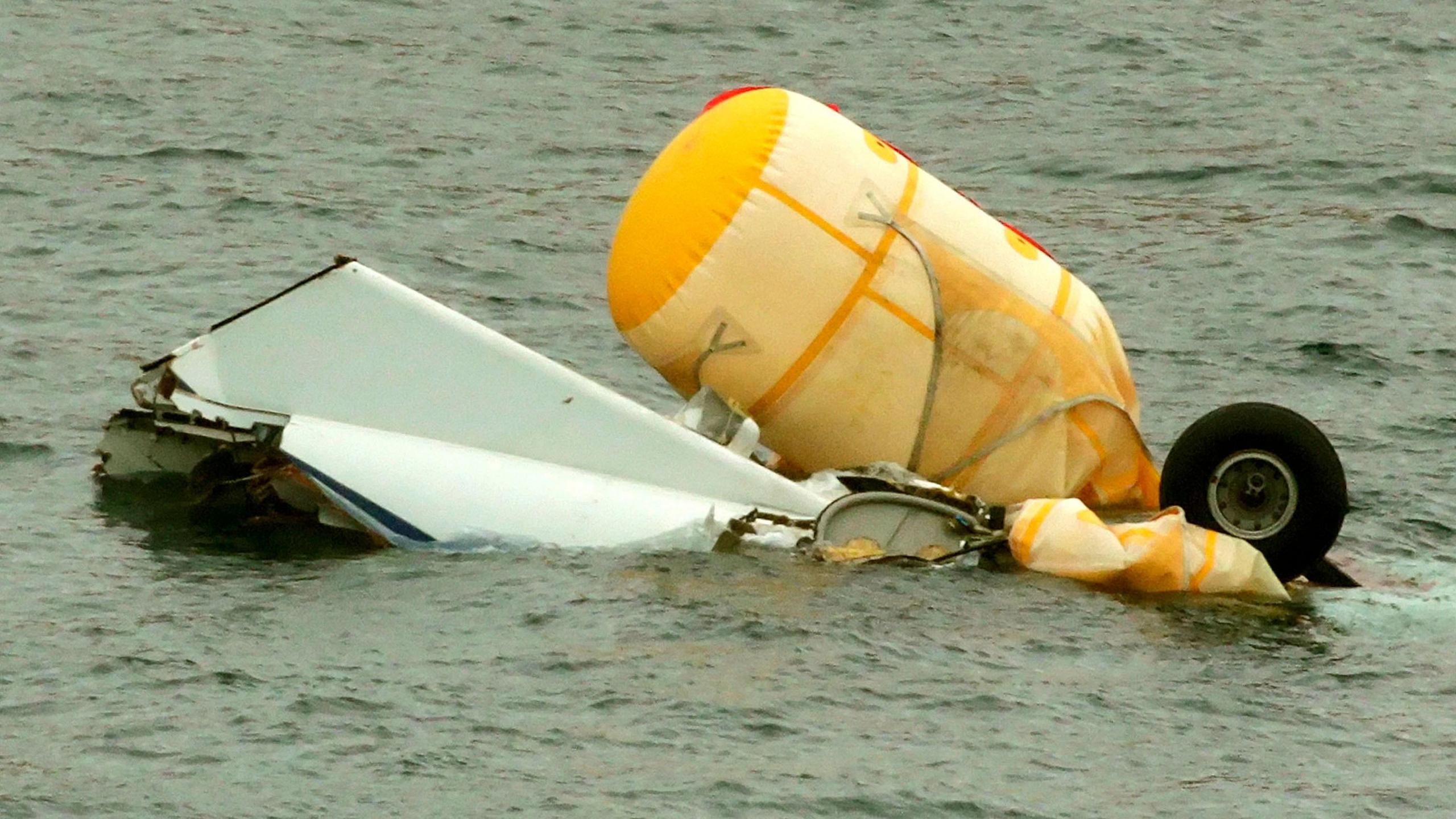North Sea workers raise Super Puma helicopter safety fears

A Super Puma helicopter was involved in a fatal crash off Shetland in 2013
- Published
Hundreds of North Sea oil and gas workers have said they would never travel in a helicopter involved in a series of fatal crashes, amid speculation about its potential reintroduction.
Three quarters of respondents to a survey by Unite the union said they would be unwilling to board Super Pumas, which were removed from the sector in 2016.
The poll, of 1,200 workers, was carried out after a number of safety concerns were recently raised about helicopters flying workers to and from offshore installations and platforms.
It follows a crash in February near Bergen, Norway, involving a different make of helicopter, the Sikorsky S-92, in which one person died.
The S-92 is the primary helicopter used across the UK and Norway, but a recent shortage of spare parts has seen some of the aircraft grounded.
Offshore flights suspended after fatal crash
- Published29 February 2024
Crash co-pilot's presence of mind 'saved lives'
- Published10 September 2020
Offshore Energies UK (OEUK) said it was aware of concerns expressed by offshore workers in Unite’s survey regarding the Super Puma aircraft.
But it added there were no plans to reintroduce the aircraft any time soon.
Craig Wiggins, executive director of Step Change in Safety, said it would play its part in facilitating engagement with the workforce to ensure its concerns were heard and addressed.
A spokesman for Sikorsky, which manufactures the S-92 helicopter, said the aircraft met the industry’s recognised standard for safety and reliability.
The company said it continued to support and see improvement in the supply chain and was working tirelessly to serve the S-92 operating community.